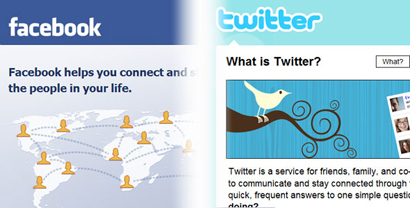
Have you heard any of these?
* A guy who works part time for the Eagles Football team updates his status report by saying something to the effect that the Eagles suck due to a trade they made. The Eagles fire him.
* A woman gets a job offer from Cisco. She tweets “Got a job offer from Cisco. Now have to decide between a fatty paycheck versus a long commute and hating my job.” One of Cisco channel partners sees it on Twitter and comments. I didn’t hear how it turned out but I’m fairly certain Cisco rescinded the job offer. (And chances are she’s going to have a heck of a time finding another job since this story was all over the place to such an extent it will take awhile to get it out of Google.)
* A guy who I think is the agency owner travels to the headquarters of one of his biggest customers for a presentation (ironically on social networking). He tweets an unflattering tweet about the city where his client is headquartered. The employees spot it, call him on it and he ultimately loses the account.
I’m sure there are more of these stories, but you get my point. Social networking can give you credibility, visibility, leads and can help grow your business. It can also lose you jobs and customers.
So what do these stories have in common? Simple — the person forgot social networking was public.
And that’s the point of today’s article. What you do on social networking is public.
Now, I know that sounds obvious but, like most obvious things, it gets overlooked. And it’s easy to see why. I mean, half the time (or even more) you get no response to things you do on Twitter or Facebook. So it’s easy to start thinking no one’s watching.
And the moment you slip and think no one is watching, no one cares, that’s when it bites you. You think you can say whatever you want, and you do. Only to discover much to your dismay that people really ARE paying attention.
The same thing that makes social networking such a powerful networking tool is the same thing that can ruin you.
Remember, your biggest strength is your biggest weakness. And that’s true here as well. The power social networking has to get your name out there in a big way can also replicate your unfortunate choice of tweets or posts in a big way and ruin your reputation faster than you can say “to tweet or not to tweet.”
Now, I’m not saying you should run scared of social networking. This isn’t about you agonizing over every comment, tweet, post, etc. you put out there. This is about being smart. It’s about never forgetting you’re dealing in a public arena and people are paying attention, even if there are days where you wonder where all that social networking love went.
And if you DO screw up and say something you shouldn’t? Well, depending on what exactly it was, you might have to do some damage control, and/or just come to grips you’ve put a black mark on your reputation and have to do some cleaning up. You CAN come back, it might not be easy or fun, but it doesn’t have to be the end of the world either.
